Search Images
Browse Content (p. 1241)
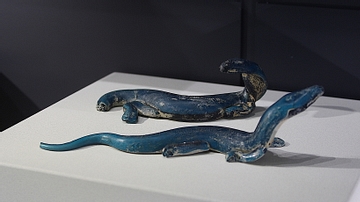
Image
Roman Glass Lizards
A pair of glass lizards, Roman Tarentum, southern Italy. 1st century BCE. (National Archaeological Museum of Taranto, Italy)
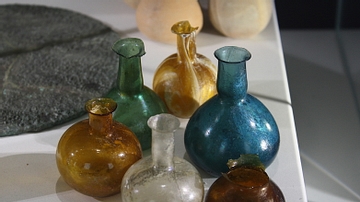
Image
Roman Coloured Glass Perfume Bottles
Roman glass perfume bottles from Tarentum, southern Italy. 1st-2nd century CE. (National Archaeological Museum of Taranto, Italy)
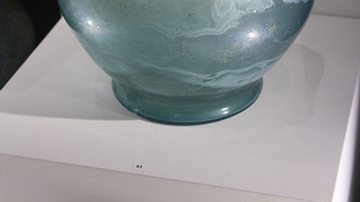
Image
Glass Funerary Urn, Tarentum
A glass funerary urn, Tarentum, southern Italy. 1st-2nd century CE. (National Archaeological Museum of Taranto, Italy)
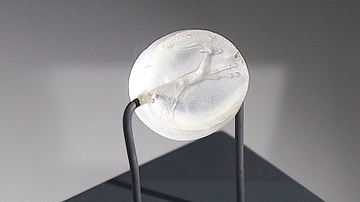
Image
Stag on Quartz Seal, Tarentum
A quartz seal carved with a depiction of a leaping stag, Tarentum, southern Italy. 4th century BCE. (National Archaeological Museum of Taranto, Italy)
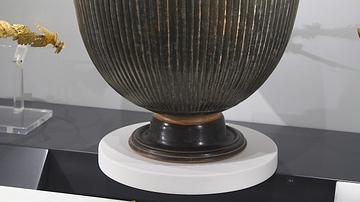
Image
Black Volute Krater, Tarentum
A black volute krater, Tarentum, southern Italy, 4th century BCE. (National Archaeological Museum of Taranto, Italy)
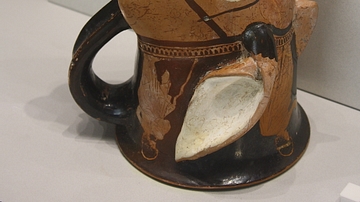
Image
Mule-shaped Rhyton, Tarentum
A rhyton in the form of a mule's head, Tarentum, 5th century BCE. (National Archaeological Museum of Taranto, Italy)
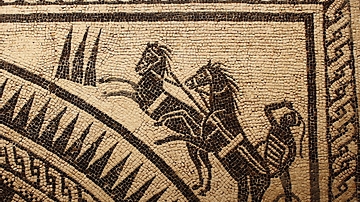
Image
Chariot Racer Mosaic, Tarentum
A detail from a floor mosaic depicting a chariot racer, Tarentum, southern Italy, Late 2nd century CE. (National Archaeological Museum of Taranto, Italy)
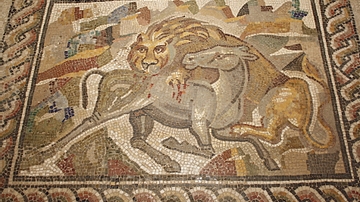
Image
Hunting Lion Mosaic, Tarentum
A panel from a larger floor mosaic depicting a hunting lion, Tarentum, southern Italy, Late 2nd, early 3rd century CE. (National Archaeological Museum of Taranto, Italy)
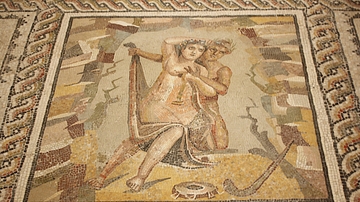
Image
Abduction of a Nymph Mosaic, Tarentum
The central panel from a larger floor mosaic depicting the abduction of a nymph, Tarentum, southern Italy, Late 2nd, early 3rd century CE. (National Archaeological Museum of Taranto, Italy)
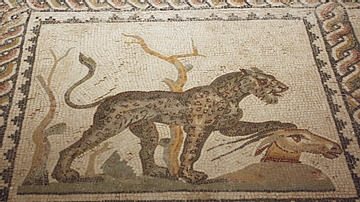
Image
Leopard Mosaic, Tarentum
A panel from a larger floor mosaic depicting a hunting leopard or panther, Tarentum, southern Italy, Late 2nd, early 3rd century CE. (National Archaeological Museum of Taranto, Italy)